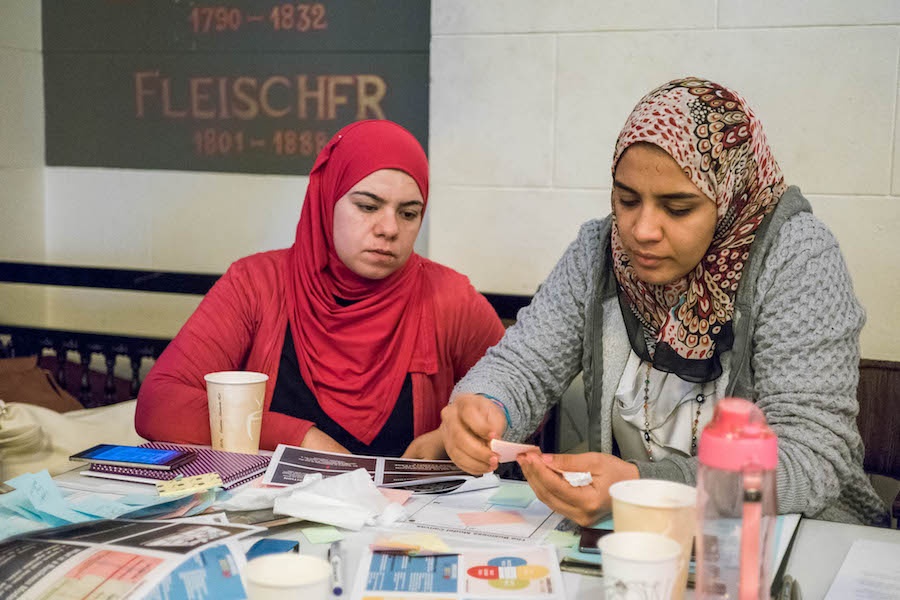Government and private sector team up to support startups in Egypt

In recent years, the Egyptian government has taken on a new, more proactive role by partnering with the private sector to boost Egypt’s growing startup scene.
These partnerships are slowly dismantling the perception of government as a reactive agent when it comes to supporting entrepreneurship in the country.
According to Dr. Hossam Osman, Manager of Egypt’s Technology Innovation and Entrepreneurship Center (TIEC), there is a high interest in supporting entrepreneurship, particularly IT, across all government ministries.
“We’re gradually moving away from the do-it-yourself approach and towards collaboration with the private sector to accomplish this,” he said. On the part of government, such collaboration with the private sector has emerged in all forms, from engaging in partnerships, to providing funding, to offering logistical and bureaucratic support.

“The Central Bank understands the importance of moving to a digital sphere and how Egypt could benefit from a digital economy,” he explains. Shawky points to the November 2016 revised mobile payment regulations of the Central Bank as essential to his platform’s success. “In the past year, the Central Bank has relaxed limitations on balance and transaction sizes that have permitted our platform to succeed in a way that would not have been possible just two or three years ago.”
With startups and entrepreneurship becoming more normalized in Egypt, ministries have seized upon entrepreneurship as one way to reduce youth unemployment.
In partnership with the three leading online learning platforms Udacity, Coursera, and Edx, TIEC has sponsored online courses that encourage and teach entrepreneurship for youth across the country in a program called Next Technology Leaders. Covering course costs of approximately $200 per month for each student, the program for Udacity has served approximately 370 students across Egypt and aims to expand its outreach in the coming year.
Cairo isn’t getting all the attention
As of November 2016, TIEC has also initiated the Innovation Clusters Initiative in Alexandria and will soon open another in Upper Egypt in the New Assiut Technology Park. These clusters are opened in collaboration with key academic and private sector players to foster ICT development in different geographic areas throughout Egypt. Egyptian startup accelerator Flat6labs will likely join the newest cluster in Upper Egypt once formed.
In the Suez, programs like Khaleeha Suessi have launched to promote innovation and entrepreneurship across a variety of sectors, ranging from solar to recycling. The program is in partnership with the Arabian Cement Company (ACC), the Suez governorate, and incubator Nahdet El Mahrousa. The ACC funds, the Suez governorate backs and legitimizes, and incubator Nahdet El Mahrousa provides selected entrepreneurs with training and mentorship.

In Luxor, the Imkan programs launched in 2017 by the United Nations Industrial Development Organization (UNIDO) are working to support 20 early stage innovative startups and seven SMEs working in the agro-industry, renewable energy and waste management sectors through training and consultancy. Funded by the government of Japan and carried out with the support of the Egyptian ministry of trade and industry and Governorate of Luxor, Imkan is focused on bringing socioeconomic growth to youth in Upper Egypt.
“Imkan changed my thinking in approaching challenges to entrepreneurship,” said Mostafa Badawi, participant in the Imkan program and founder of a startup that manufactures recycled plastic for farms in Upper Egypt. “I have been able to establish my own business and achieved my dream to be a leader for development in Upper Egypt.”
Filling the gaps
While government partnerships and policies have the potential to be helpful, all sectors lag when it comes to meeting the high demands of the startup community. All sides acknowledge that there are still significant gaps to fill in terms of training, education, continued relaxing of regulations, and funding.
A greater focus on education in particular continues to resonate as a priority amongst most players in the ecosystem. “You need all sectors in Egypt to really integrate entrepreneurship into what they are already doing to fill these gaps. For example, Egyptian universities can and should focus more on entrepreneurship education,” said Dr. Ayman Ismail, the Abdul Latif Jameel Endowed Chair of Entrepreneurship at the American University in Cairo’s school of business.

The Egyptian government, on its part, continues to focus on streamlining and strengthening assistance to the entrepreneurship and technology community. It has recently established the Authority for Development of Medium, Small, and Micro Projects, as an affiliate to the ministry of trade and industry, consolidating and replacing four existing entities: the Social Fund for Development, the Industrial Modernization Center, the Industrial Training Council, and the Council for Technology and Innovation Centers.
“The authority is in its early phases of development, so the academic and private sector community are still waiting to see how best to align with it,” Ismail said. Regardless of what direction the Authority takes, members of the ecosystem agree that partnerships, particularly between government and the private sector, will be necessary for any long-term strategy.
“Government and the private sector tend to move at a very different pace in general,” Shawky observed, noting that often governments struggle to keep up with the pace of private sector support for entrepreneurship. “However, they can, and are starting to at least move parallel to one another in Egypt when it comes to support for entrepreneurs.”


